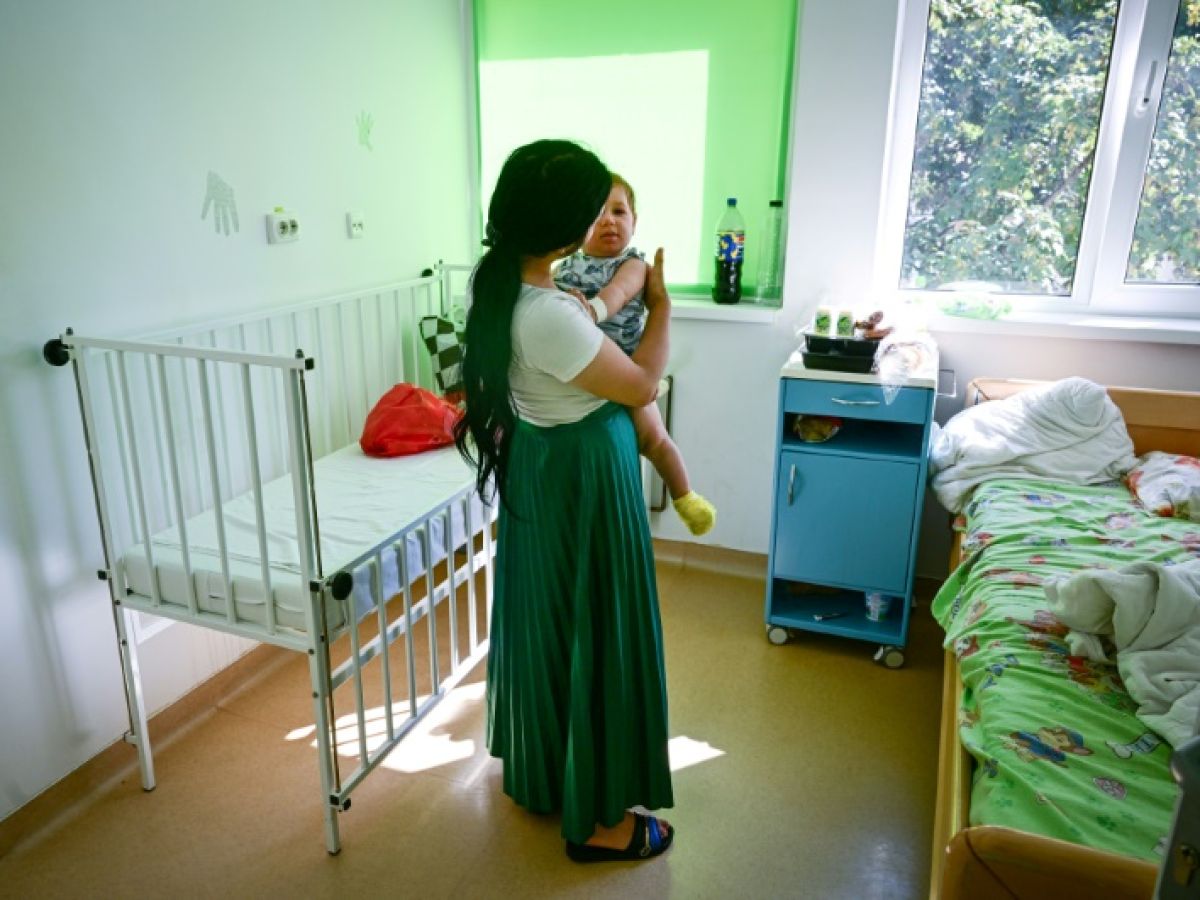Epidemiologist Daniela Gafita regularly encounters mothers reluctant to vaccinate their children against measles during her tour of villages in northeastern Romania.
Her mission has become difficult in the face of increasingly entrenched anti-vaccine beliefs, the fifty-year-old, who goes door-to-door in this region, one of the worst-affected in the Eastern European country, told AFP.
But she is not giving up: "we are gradually trying to make up for lost time" over the years, she says, while the population's vaccination rate has fallen to 62%, the lowest in the European Union, far from the 95% needed to ensure herd immunity according to the World Health Organization (WHO).
In a Europe that is seeing a resurgence of this contagious disease, Romania is at the forefront: from June 2024 to May 2025, it recorded eight deaths and 13,000 of the approximately 18,000 cases in the European Economic Area, which includes the 27 EU members, Iceland, Norway and Liechtenstein.
From the Old Continent to the United States, the situation is unprecedented for several decades, fueled by misinformation that has been raging on social networks since the Covid-19 pandemic.
– Irrational fear –
"I heard the vaccine was dangerous," sighs one of the residents of the commune of Raucesti, not at all convinced about her little boy.

Elena Armenia, 34, is in the same frame of mind after reading "things about a link with autism," a notion regularly refuted by the scientific community. "Fear has instilled itself in me and I can't change my mind," Elena says, however.
Yet her neighbors' children ended up in hospital after contracting measles, a virus that causes fever, respiratory symptoms and rashes, sometimes with complications that can lead to serious after-effects and even death.
A child died in July in the UK from the disease, which has also killed three people this year in the United States.
Family doctor Monica Apostol is less optimistic than her colleague, based on her conversations with parents. "I'm hitting a wall," she sighs. "I don't see a solution."
– Far right antivax –

Several factors come into play: the millions of Romanians who went to work abroad after the fall of communism in 1989, resulting in less vaccination coverage, a lack of confidence in an underfunded health sector, and a certain laxity on the part of the authorities denounced by the medical profession.
But above all, as in the United States in the wake of Health Minister Robert Kennedy Jr., the Romanian far right is contributing to this trend by becoming the apostle of anti-vax theories.
Its leader, George Simion, who came out on top in the first round of the presidential election in May before losing in the second, called for parents to be given complete freedom on the issue.
"Disinformation campaigns are extremely sophisticated, as the recent elections have shown," said Gindrovel Dumitra, vaccination coordinator for one of the main medical associations.
The new pro-European president, Nicusor Dan, has made the fight against fake news a priority.
"We must regain the trust" of citizens disillusioned with a Romanian government deemed corrupt and incompetent, a process "which will take time," he insisted recently.

In the meantime, he advocates for the implementation of measures that allow us to "react within half an hour of the dissemination of fake news so that it does not affect several million people" and then become impossible to stop.
In the specific case of measles, Daniel Gafita, like other doctors, is calling for the government to tighten rules – which did not respond to AFP's requests for comment. For example, by making vaccination a prerequisite for children to enroll in the public school system.
"Even if such measures are unpopular and not at all in keeping with the times," she regrets.


